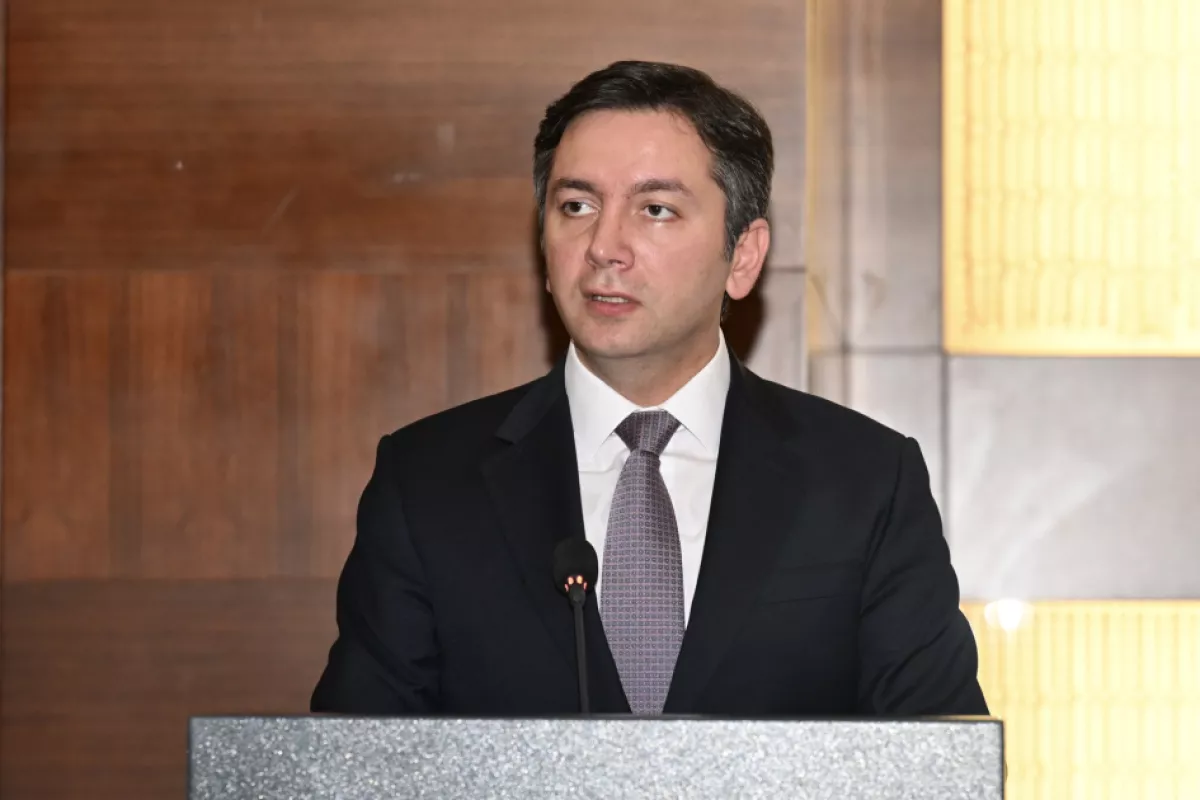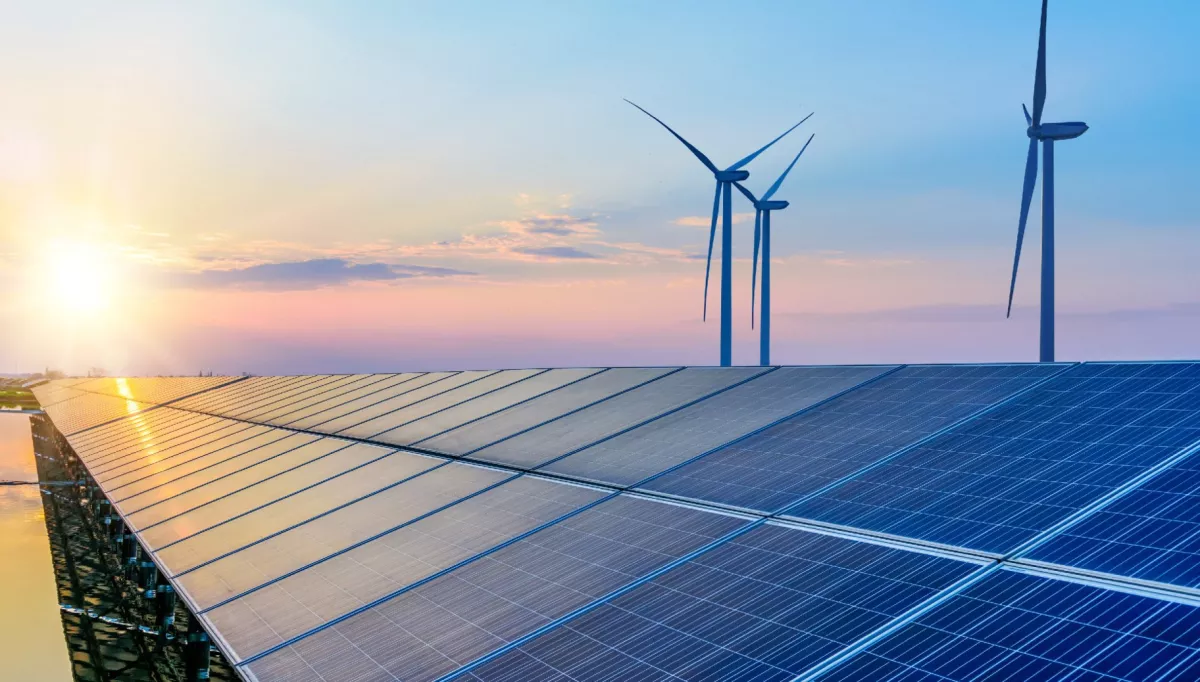Azerbaijan and the architecture of the energy future Renewables as a new diplomatic tool
In recent years, the Azerbaijani government has actively positioned itself within the global “2030 Energy Transition” framework. The country has set ambitious targets to address climate change while accelerating the expansion of its renewable energy sector (RES). Key initiatives include the implementation of large-scale solar energy projects, the development of wind energy potential through onshore and offshore wind farms, and the production of green hydrogen.
The prospects and challenges of these initiatives were the central focus of the 13th International Caspian Energy Forum 2025, held on October 29 in Baku, highlighting Azerbaijan’s growing role in shaping the future of sustainable energy in the region.
For many years, international meetings in Baku under the Caspian Energy Forum framework have brought together representatives from the energy sector, government agencies, international financial institutions (IFIs), investment funds, and diplomatic missions to discuss key priorities in energy development.
As one of the major energy events in the Caspian, Black Sea, and Baltic regions, this year’s forum was held under the slogan NewEnergyForBusiness. Participants explored the region’s role in the global energy transition, with particular focus on the “Green Energy Corridor” — a strategic cooperation initiative involving Azerbaijan, Kazakhstan, Uzbekistan, and countries of the Black Sea region.
Beyond renewable energy, the forum also addressed innovative economic approaches, new business models, regional cooperation opportunities, and the deepening of dialogue between governments, businesses, and international organisations.
“Over the past ten years, the damage caused by major natural disasters linked to climate change has amounted to 1.3% of global GDP. The consequences of climate change, in particular greenhouse gas emissions, not only harm the environment but also lead to inefficient use of economic resources, creating serious threats to sustainable industrial development and food security in countries,” said Samira Musayeva, Deputy Head of the State Tax Service under the Ministry of Economy of Azerbaijan, during the Caspian Energy Forum 2025.
Renewable energy production in Azerbaijan plays a central role, with the government acting as a key supporter of these initiatives, according to a representative of the State Tax Service. The official highlighted that Azerbaijan is actively pursuing its climate adaptation goals.
In addition to expanding renewable energy generation, the country is focusing on developing infrastructure to transport clean energy to international markets and establishing “green” industrial parks. Transitioning to a green economy will also require economic modernisation, adoption of innovative technologies, long-term competitiveness, and — crucially — the creation of a favourable business environment to attract substantial early-stage investments.

According to Deputy Minister of Foreign Affairs Yalchin Rafiyev, climate and energy have become among the most important and priority issues for Azerbaijan. The successful hosting of the UN Climate Conference COP29 last year demonstrated the country’s leading role on the climate agenda and revealed the potential for regional and global cooperation.
“Today, Azerbaijan plays an important role in shaping the new energy map of the region, both as a producer and as a transit country, expanding cooperation in this direction with Kazakhstan, Uzbekistan, and the countries of the Black Sea basin,” said the deputy foreign minister at the 13th Caspian Energy Forum. “Renewable energy projects being implemented in Karabakh and East Zangezur, along with the development of the Caspian Sea’s wind potential, are turning our country into a regional hub for green energy. We are working closely with international partners to achieve our goals in expanding renewable energy capacities.”
Notably, on December 17, 2022, Azerbaijan, Georgia, Romania, and Hungary signed an agreement to construct the Black Sea Energy electric cable, a 1,195 km seabed connection with a capacity of 1,000 MW. With an initial budget of $2.3 billion, the project is slated to begin implementation in 2029.
The cable is designed to deliver electricity generated from renewable energy sources in Azerbaijan and Georgia to Europe, supporting regional energy integration. Plans are also underway to further expand electricity exports by establishing a Trans-Caspian submarine cable linking the countries of Central Asia, creating a broader corridor for clean energy to reach European markets.
“Azerbaijan, Kazakhstan, and Uzbekistan are actively working on integrating their energy systems. By the end of this year, we also expect to complete the feasibility study for a major energy interconnector project, which will link the Caspian Sea with the future Black Sea Energy infrastructure,” said Javid Abdullayev, Director of the State Agency for Renewable Energy under the Ministry of Energy of Azerbaijan. “This project represents a strategic direction for the development of green energy and regional integration, laying the foundation for exporting renewable electricity from Azerbaijan to Europe.”

As noted by the head of the State Agency, once the current phase is completed, the project will move to its next stage. In the near future, the process of establishing a joint venture (JV) to implement the second Caspian Sea interconnector will be completed, with the JV’s headquarters located in Baku. According to him, the Asian Development Bank (ADB) and the Asian Infrastructure Investment Bank (AIIB) have decided to provide funding for analytical and expert evaluations of the project, with technical specifications already agreed upon and approved.
“Other strategic projects are also progressing actively — including the energy interconnector along the Azerbaijan–Georgia–Türkiye–Bulgaria route, for which high-level political agreements have been reached. In addition, a fourth interconnector is being implemented to facilitate the export of green energy, running through the Nakhchivan Autonomous Republic (NAR) to Türkiye and onward to Europe,” said Abdullayev.
A key strategic focus for Azerbaijan’s renewable energy development is the exploitation of wind energy potential in its sector of the Caspian Sea, estimated at 157 GW, ranking second globally after the North Sea. While actual projects may initially tap only a fraction of this potential — around 7.2 GW — even this capacity offers significant opportunities for offshore wind power, including the production of green hydrogen for export to EU countries.
“The European Bank for Reconstruction and Development (EBRD) is supporting Azerbaijan in developing a roadmap for hydrogen energy: the bank is already providing financial and expert assistance, and the process of selecting an international consulting firm to prepare a detailed, implementation-oriented document has entered its final stage,” said Abdullayev. “We already have a shortlist of international consulting companies and are seeing strong interest in this project. I am confident the results will be successful.”
He also reminded that during COP29, Azerbaijan presented its vision for hydrogen energy development along with a strategic document that attracted wide international attention.

Notably, another major international donor institution, the Asian Development Bank (ADB), is also a leading partner of Azerbaijan in the field of green investments.
“The Azerbaijani government's position is very clear: you have a goal of achieving net-zero emissions by 2050 and a clear target of 30% renewable energy in the country's total energy production. In this context, the ADB hopes to continue investing in Azerbaijan’s energy sector. Promising areas include the development of research and innovation in blue and green hydrogen, energy storage systems for renewable generation, energy efficiency, and the issuance of green bonds,” said Sunniya Durrani-Jamal, Head of the ADB Representation in Azerbaijan, during the forum in Baku.
Overall, Azerbaijan is steadily expanding opportunities for green financing in the renewable energy sector. According to Rza Nagiyev, Director of the Finance Department at SOCAR Green, in 2020, the Central Bank of Azerbaijan provided a legislative framework, including the adoption of a green taxonomy, which is a very promising step.
The head of SOCAR Green’s department noted that green financing requires sufficient capitalisation, and conditions should be simplified so that each project can reflect its unique characteristics, while banks and financial institutions must regulate the process to increase interest in such financing. He emphasised that it is particularly important that, since the end of 2024, government procurement responsibilities have been integrated into the support mechanism, with tax incentives provided for 30 years, marking a highly significant step for the sector.








